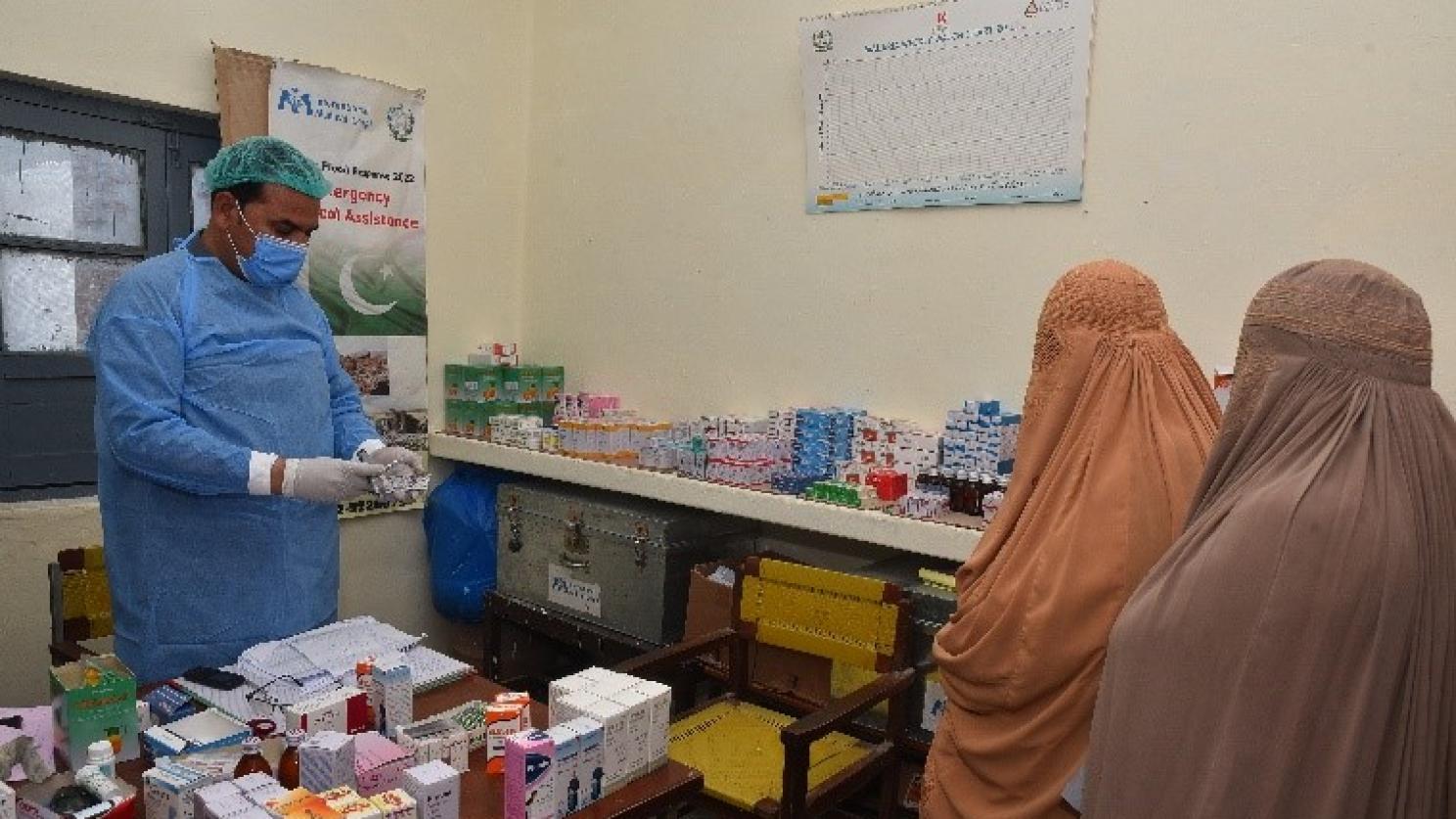Healthcare in flood-affected Pakistan
In June 2022, torrential monsoon rains in Pakistan triggered severe flooding, impacting 33 million people across the country. The crisis strained an already-fragile health system, diverting resources, threatening supply chains and adversely impacting access to health facilities. In Charsadda district, of Khyber Pakhtunkhwa (KP) Province, many of the primary healthcare facilities were completely non-functional.
International Medical Corps supported the local Department of Health in KP by providing essential medicines and—thanks to FedEx—deploying two mobile medical teams (MMTs).
Healthcare in flood-affected Pakistan
Raheela is a 35-year-old widow living in Charsadda district in KP Province. Her husband died of heart failure a couple of years ago, leaving Raheela along with their four children—two boys and two girls. Since then, Raheela has earned a living as a housemaid.
Due to the flooding, Raheela was suffering from scabies, a skin disease that causes severe itching, bumps and redness. Initially, Raheela ignored the symptoms, thinking they would go away on their own.

When her symptoms did not go away, a local pharmacy recommended she visit the International Medical Corps MMT. According to Dr. Ameer Hamza, the MMT lead doctor, “she [had] been scratching and [her] rashes looked more like sores.” The doctor prescribed a cream, as well as an allergy medicine to reduce the itching and help Raheela sleep. When asked if other members of her family were suffering from the same problem, Raheela informed the doctor that her 5-year-old son had the same rash. Raheela brought her son to the MMT the next day. “The child had the same rash all over and looked tired and cranky,” said Dr. Hamza, who prescribed a similar treatment for Raheela’s son.
As a housemaid, Raheela barely earns enough income to feed her family. She was concerned by the potential cost of treatment. When she found out the consultation and medicine was free, she immediately raised her hands to say a prayer and give thanks for International Medical Corps.
The doctor advised Raheela on how to avoid reinfection and scheduled follow up appointments. At their one-week follow-up visit, Raheela and her son showed promising improvement and reported that they were finally able to sleep through the night.
